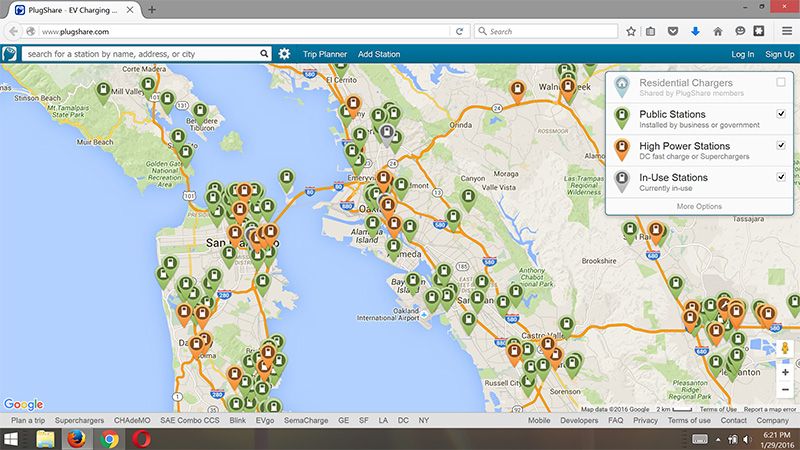matth
Well-known member
There have been a number of threads recently about frustrations with privately owned public charging infrastructure. These include (lack of) interoperability of membership cards, station reliability, the fact that many effectively hold a deposit, high and illogical charging cost, and so on.
I'm starting to wonder if we need a little push to make sense of the wild west of public charging, at least in places where there is significant build out. California, where I live, seems like it's ripe, for reasons over and above the problems I list above. The main one is that there has been, and continues to be enormous investment of public and quasi-public funds in the infrastructure build-out.
These include:
-stimulus funding
-local air district funding
-settlement of lawsuits related to power company malfeasance in the 2001 power crisis
-and now, major IOUs (at least PG&E, can other members weigh in about SCE/SMUD/SDG&E?) have been given the go-ahead by the PUC to charge all ratepayers in order to build out its own charging infrastructure.
Especially with a utility owning and operating public charging infrastructure, it seems to me that regulation by the PUC, or legislation to allow regulation of all stations makes sense.
I'd be interested in reactions. For those who think it's a good idea, how would you implement it. For those who think it's a bad idea, why? It would be most helpful to target your reactions to the fact pattern above. I certainly understand that in other places with much less public infrastructure, and less public investment, the time may be far from ripe to move forward with any sort of serious regulation.
I'm starting to wonder if we need a little push to make sense of the wild west of public charging, at least in places where there is significant build out. California, where I live, seems like it's ripe, for reasons over and above the problems I list above. The main one is that there has been, and continues to be enormous investment of public and quasi-public funds in the infrastructure build-out.
These include:
-stimulus funding
-local air district funding
-settlement of lawsuits related to power company malfeasance in the 2001 power crisis
-and now, major IOUs (at least PG&E, can other members weigh in about SCE/SMUD/SDG&E?) have been given the go-ahead by the PUC to charge all ratepayers in order to build out its own charging infrastructure.
Especially with a utility owning and operating public charging infrastructure, it seems to me that regulation by the PUC, or legislation to allow regulation of all stations makes sense.
I'd be interested in reactions. For those who think it's a good idea, how would you implement it. For those who think it's a bad idea, why? It would be most helpful to target your reactions to the fact pattern above. I certainly understand that in other places with much less public infrastructure, and less public investment, the time may be far from ripe to move forward with any sort of serious regulation.

